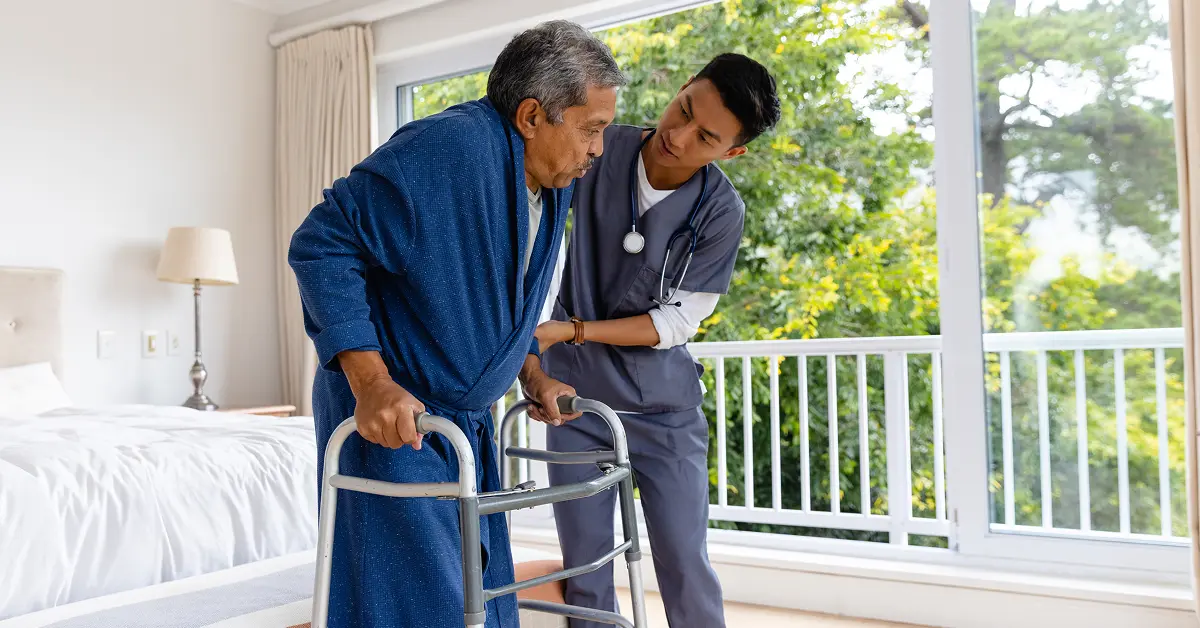Recovering after a hospital stay can be overwhelming—both for patients and their families. Whether it’s post-surgery, chronic illness management, or recovery from an accident, the journey doesn’t end at the hospital door. In India, hospital discharge care services have emerged as a crucial bridge between hospital treatment and full recovery at home.
This blog will walk you through the step-by-step recovery process supported by Hospital Discharge detailing the benefits, services offered, and how families can ensure a smoother and safer healing journey at home.
What Are Hospital Discharge Care Services?
Hospital discharge care services refer to professional medical and non-medical support provided at home after a patient is discharged from a hospital. These services aim to ensure continuity of care, prevent complications, and assist the patient in regaining independence.
These services may include:
- Home visits by trained nurses
- Medication management
- Wound dressing and post-operative care
- Physiotherapy sessions
- Nutrition guidance
- Coordination with doctors
Especially in urban Indian cities like Mumbai, Delhi, Bengaluru, and Hyderabad, families are increasingly turning to professional home care services to manage recovery with confidence.
Step-by-Step Recovery After Hospital Discharge
Let’s understand how hospital discharge care services streamline each stage of recovery:
Step 1: Pre-Discharge Planning
Recovery begins even before the patient leaves the hospital. Discharge planning involves:
- Assessing the patient’s medical condition
- Coordinating with the treating physician
- Creating a home care plan tailored to the individual’s needs
- Identifying necessary medical equipment or modifications (wheelchair, ramps, oxygen support, etc.)
Step 2: Safe Transportation and Home Setup
The day of discharge can be chaotic. Professional care teams can arrange:
- Ambulance or safe transport
- Hospital bed setup at home
- Equipment installation (oxygen concentrator, suction machine, etc.)
- Basic training for family caregivers if needed
Step 3: Initial Assessment at Home
Once home, a trained nurse or care coordinator conducts a comprehensive assessment that covers:
- Vitals monitoring (BP, sugar, heart rate, etc.)
- Physical condition (mobility, wound healing, pain levels)
- Mental and emotional well-being
- Review of medications and therapy schedules
Step 4: Daily Nursing and Medical Care
Based on the patient's needs, home care services may include:
- Daily visits by registered nurses
- IV or injection administration
- Catheter or feeding tube management
- Wound dressing
- Monitoring for any signs of infection or complications
Step 5: Physiotherapy and Mobility Support
For post-surgery or stroke recovery patients, physiotherapy is vital. Home-based physiotherapists offer:
- Personalized exercise routines
- Mobility training
- Pain management techniques
- Use of assistive devices
Step 6: Medication Management
Many patients are prescribed multiple medicines after discharge. A professional care provider ensures:
- Timely administration of all medications
- Monitoring of side effects
- Refill reminders and prescription coordination with doctors
Step 7: Emotional and Mental Support
Illness can take a toll not just on the body but also on the mind. Good hospital discharge care includes:
- Friendly and empathetic caregivers
- Counselling or support groups (if needed)
- Encouraging social interaction and communication
Step 8: Regular Doctor Follow-Ups and Health Monitoring
Home care coordinators assist in:
- Booking follow-up appointments
- Arranging video consultations
- Sharing progress reports with the primary physician
Why Hospital Discharge Care Services Are Crucial in India
India's healthcare infrastructure, while robust in hospitals, is still growing in terms of post-discharge support. Here’s why discharge care services are gaining popularity:
- Busy urban families may not have the time or skills for complex caregiving.
- Trained caregivers offer professional-level care, reducing risks.
- Affordable packages available through local providers make it accessible.
- Avoids unnecessary readmissions, which can be expensive and demoralizing.
- Provides peace of mind for working professionals caring for ageing parents.
How to Choose the Right Discharge Care Provider
When selecting a service provider in India, keep these tips in mind:
- Look for NABH-accredited home care services
- Ensure staff are qualified and background-verified
- Check if they offer 24/7 support
- Ask for a customized care plan based on your needs
- Verify if the provider coordinates with hospitals or doctors directly
Final Thoughts
Recovery is not just about leaving the hospital—it’s about returning to life. Hospital discharge care services help bridge this crucial gap, providing structured, compassionate, and expert-led support at home.
For Indian families juggling jobs, elder care, and health concerns, these services offer a safe and reliable path to recovery. From managing medicines to offering physiotherapy and emotional support, every step is covered professionally.
So, the next time a loved one is getting discharged from the hospital, remember: healing begins at home, and hospital discharge care services make it possible.
Contents
Our 24*7 services
Latest Posts
- What Is Respite Care and Why Is It Important
- Affordable home care for senior citizens in India
- Caring for Seniors with Dementia or Alzheimer's at Home
- Senior Caregiving A Guide for Every Family
- How to Write a Caregiver Resume That Gets You Hired
- How Care After Hospital Discharge Speeds Up Recovery at Home
- How to Get Home Health Care for Seniors Through Medicare
- What Does a Senior Citizen Caregiver Really Do at Home
- How to Care for Elderly Parents with Alzheimer’s or Dementia
- How to Get 24-Hour Care for Seniors at Home



